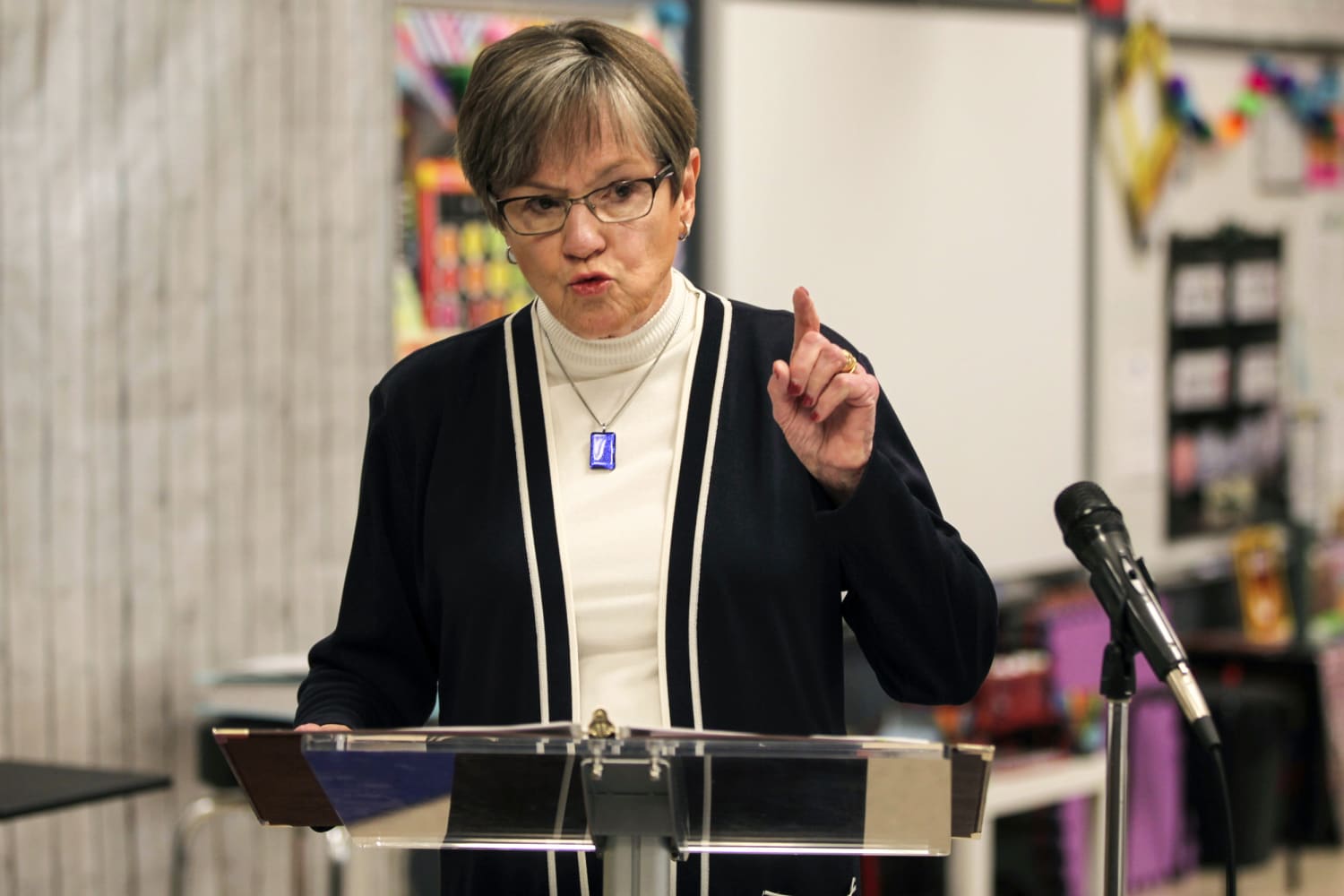[ad_1]

Republican legislators in Kansas have enacted what may be the most sweeping transgender bathroom law in the U.S. on Thursday, overriding the Democratic governor’s veto of the measure without having a clear idea of how their new law will be enforced.
The vote in the House was 84-40, giving supporters exactly the two-thirds majority they needed to override Gov. Laura Kelly’s action. The vote in the Senate on Wednesday was 28-12, and the new law will take effect July 1.
At least eight other states have enacted laws preventing transgender people from using the restrooms associated with their gender identities, but most of them apply to schools. The Kansas law applies also to locker rooms, prisons, domestic violence shelters and rape crisis centers.
The Kansas law is different than most other states’ laws in that it legally defines male and female based on a person’s reproductive anatomy at birth and declares that “distinctions between the sexes” in bathrooms and other spaces serves “the important governmental objectives of protecting the health, safety and privacy.” Earlier this week, North Dakota enacted a law that prohibits transgender children and adults to access bathrooms, locker rooms or showers in dormitories of state-run colleges and correctional facilities.
Kansas’ law doesn’t create a new crime, impose criminal penalties or fines for violations or even say specifically that a person has a right to sue over a transgender person using a facility aligned with their gender identity. Many supporters acknowledged before it passed that they hadn’t considered how it will be administered.
The bill is written broadly enough to apply to any separate spaces for men and women and, Kelly’s office said, could prevent transgender women from participating in state programs for women, including for female hunters and farmers. As written, it also prevents transgender people from changing the gender markers on their driver’s licenses — though it wasn’t clear whether that change would occur without a lawsuit.
Critics of the new law believe it is an attempt to legally erase transgender people while also refusing to recognize gender fluid, gender non-conforming and non-binary people. They argued that the bill’s vagueness will prompt harassment of transgender people.
Kansas’ law doesn’t create a new crime, impose criminal penalties or fines for violations or even say specifically that a person has a right to sue over a transgender person using a facility aligned with their gender identity. Many supporters acknowledged before it passed that they hadn’t considered how it will be administered.
The bill is written broadly enough to apply to any separate spaces for men and women and, Kelly’s office said, could prevent transgender women from participating in state programs for women, including for female hunters and farmers. As written, it also prevents transgender people from changing the gender markers on their driver’s licenses — though it wasn’t clear whether that change would occur without a lawsuit.
Critics of the new law believe it is an attempt to legally erase transgender people while also refusing to recognize gender fluid, gender non-conforming and non-binary people. They argued that the bill’s vagueness will prompt harassment of transgender people.
“The lack of clarity is by design because it allows them to disclaim the worst possible interpretation while also allowing for the worst possible outcome to happen,” said Micah Kubic, the executive director of the American Civil Liberties Union of Kansas, which opposed the law.
The new law is part a large push by Republicans across the U.S. to roll back LGBTQ+ rights, particularly transgender rights. At least 21 states, including Kansas, restrict or ban female transgender athletes’ participation in girl’s and women sports, and at least 14 but not Kansas have restricted or banned gender-affirming care for minors.
Supporters of the Kansas bathroom bill argue that they’re responding to people’s concerns about transgender women sharing bathrooms, locker rooms and other spaces with cisgender women and girls.
“We want to have safety,” said state Rep. Brenda Landwehr, a Wichita Republican and the chair of the House health committee.
[ad_2]
Source link
